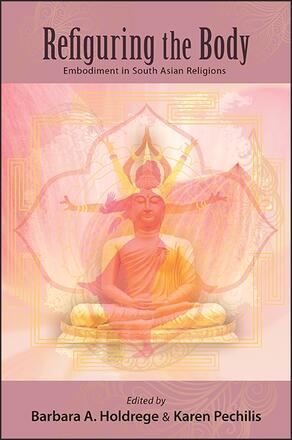
Refiguring the Body
Embodiment in South Asian Religions
Alternative formats available from:
Examines how embodiment is conceived and experienced in South Asian religions.
Description
Refiguring the Body provides a sustained interrogation of categories and models of the body grounded in the distinctive idioms of South Asian religions, particularly Hindu and Buddhist traditions. The contributors engage prevailing theories of the body in the Western academy that derive from philosophy, social theory, and feminist and gender studies. At the same time, they recognize the limitations of applying Western theoretical models as the default epistemological framework for understanding notions of embodiment that derive from non-Western cultures. Divided into three sections, this collection of essays explores material bodies, embodied selves, and perfected forms of embodiment; divine bodies and devotional bodies; and gendered logics defining male and female bodies. The contributors seek to establish theory parity in scholarly investigations and to re-figure body theories by taking seriously the contributions of South Asian discourses to theorizing the body.
Barbara A. Holdrege is Professor of Religious Studies and Chair of the South Asian Studies Committee at the University of California, Santa Barbara. Her books include Bhakti and Embodiment: Fashioning Divine Bodies and Devotional Bodies in Kṛṣṇạ Bhakti and Veda and Torah: Transcending the Textuality of Scripture, also published by SUNY Press. Karen Pechilis is NEH Distinguished Professor of Humanities in the Comparative Religion Department at Drew University. Her books include Interpreting Devotion: The Poetry and Legacy of a Female Bhakti Saint of India and The Embodiment of Bhakti.
Reviews
"…Refiguring the Body makes for a dense but fascinating read. Scholars of Asian traditions should definitely read it, and it will probably have special appeal to scholars of yoga, dance and performing arts, as well as women's and gender studies." — Nova Religio
"The sheer weight of textually and ethnographically well grounded evidence speaking to distinctive South Asian paradigms of embodiment is this volume's greatest contribution, and one that should inspire continued in-depth scholarship into both the traditions themselves and potential cross-cultural applications of their insights." — Body and Religion